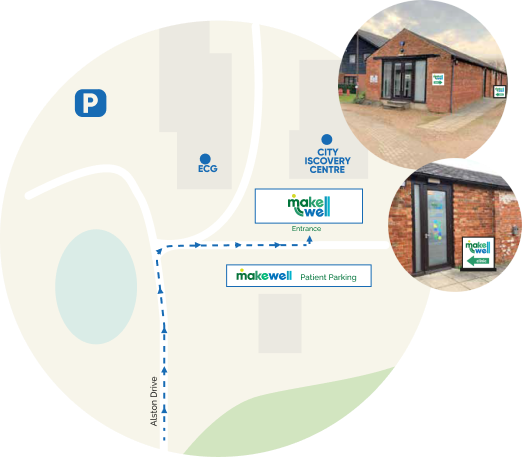The anterolateral aspect of the thigh is the preferred site for infants under one year old, because it...
Anaphylactic reactions to vaccines are extremely rare. Between 1997 and 2003, there were 130 reports to the Medicines and Healthcare products Regulatory Agency (MHRA) of anaphylaxis or anaphylactic-type reactions following immunisation. In that time, around 117 million doses of all vaccines were supplied to hospitals and GP’s.
Although anaphylactic reactions to vaccines are extremely rare, I just wanted to share my experience as it’s helpful to learn from someone who has experienced it first-hand. I was a school immunisation nurse for 7 years before I worked for ECG and have many years of experience giving vaccinations to all age groups.
On this day in question, I was vaccinating year 8 girls with their first HPV (Human Papilloma Virus) vaccine in a secondary school, a vaccine that has been used in this country for over 10 years. Halfway through the session, one of the girls felt slightly lightheaded after her vaccine (this is a regular occurrence when giving teenagers injections!). We laid her down and raised her legs as is the normal treatment for somebody who feels faint after an injection.
After about 15 minutes she started to complain that she felt like her throat was closing up, she also developed a bright red rash that was creeping up from her neck to her face and was obviously extremely anxious. Myself and my 2 colleagues all established very quickly that she was having an anaphylactic reaction to the vaccine as her throat tightening was getting worse, this was her first dose of HPV and she had never experienced anything like this before.
Thankfully we always allocated roles and responsibilities prior to each immunisation session in case of an emergency situation so one colleague called an ambulance, myself and my other colleague drew up the adrenaline dose of 500 micrograms as she was 13 years old and I administered it to the student in her thigh (the Vastus Lateralis muscle) as per protocol, luckily she was wearing a skirt so we could maintain her dignity
This was a very stressful and frightening situation mainly for the patient but also for us immunisation nurses as being in a school, you realise how isolated you are and your box of adrenaline is all you have to keep this patient alive and this was something none of us had dealt with before but we stayed calm for the young girls sake and just followed our years of anaphylaxis and basic life support training.
Thankfully the ambulance arrived very quickly and after a second dose of adrenaline 5 minutes later, her throat swelling and rash subsided and she was taken to hospital. Very kindly her mum phoned me the next day and told me that her daughter had to have more adrenaline when she arrived at hospital and thanked us for saving her life, the hospital staff told her that had we not intervened as quickly as we did, her daughter could’ve died. This was humbling to hear and made us all realise how important it is that we are always up to date with our training and familiar with the anaphylaxis kit and know the correct doses and how to draw it up.
The conclusion to this and the advice that I would give to anybody who may go through the same scenario one day is to stay calm, be confident with the knowledge you have and don’t hesitate to use adrenaline when you have a patient who is showing signs of anaphylaxis as, speaking from experience, it will save that patient’s life.
Written by Laura Kennedy (Clinical Development Manager at ECG Training) Wednesday 1st September 2021.

